Say goodbye to the "Silent Giant": Only by understanding Busquets can you understand the deepest football wisdom
When Busquets announced on social media that he would hang up his boots after the end of this season's FA League, the whole world football world seemed to sigh tacitly - deep, and with a sense of "it's finally here." Busquets' retirement completely put the final end to an era: the fantasy Barcelona, once known as the "cosmic team", the iron triangle "Habbai" that defined the passing and controlling football, finally bid farewell to the green field. Their cooperation is like a exquisite symphony, with Xavi being the conductor, Iniesta being the chief violinist, and Busquets being the indispensable bass. Maybe you don't often listen to his melody alone, but his absence will definitely make the entire movement lose balance and dimness. Looking back on Busquets's career, it can be regarded as an epic about "understanding". "Ball blind filter " is a slightly joking title, which actually accurately expresses Busquets' football philosophy. His greatness is far from the measure of cold data. Goals, assists, steals - these statistics that modern football is keen on, always seem pale and powerless when it comes to him. His value is hidden in every inadvertent run, every seemingly simple stopping the ball and turning around, and every time he eliminates it invisible prediction before the crisis breaks out. Understanding Busquets means that you understand position, rhythm and space, and the deepest wisdom of the sport of football. The "outliers" of Lamacia and Guardiola's "eye" of Busquets are not smooth sailing. As the son of former Barcelona goalkeeper Karls Busquets, he has been immersed in the football culture of the Camp Nou since childhood. However, when he was young, he was tall and thin, with a slightly clumsy movement. He was even given up by the youth training coach of UE Leyada Club on the grounds of being "clumsy" and "too slow to bear the big responsibility." After that, he switched to the amateur team Habak Trasa, which happened to be the hometown of another Barcelona legend Xavi. The gears of fate also began to rotate: while watching the local youth team game, Harvey noticed the tall but extraordinary teenager and strongly recommended it to Lamacia. In 2005, 16-year-old Busquets was invited to join the Barcelona youth team, although his style of play was incompatible with the general expectations of midfielders at the time. He is not a breakout player with a burst of points, nor is he an attacker with a goal-scoring attacker. But Lamacia's coaches keenly discovered what's unique: in chaotic games, he always appears in the most reasonable position and handles the ball in the most concise and effective way. They placed him in the position of "Pivote" (hub) - a role introduced by Cruyff and practiced by Guardiola in the 1992 championship team, became the destination of Busquets' fate. The real turning point occurred in the 2007/2008 season, when Guardiola began to take charge of Barcelona B. This coach, who is well versed in the essence of the role of "Pivote", saw the future almost immediately in Busquets. He not only asked the club to sign a professional contract with Busquets, but also regarded him as the team's "pacifier". Guardiola modernized the team, from diet, sleep to tactical analysis meetings, and Busquets was the most perfect recipient and executor of all these changes. That season, Busquets led the Barcelona B team to the Spanish Second Division and his performance completely conquered Guardiola. Subsequently, Guardiola was unexpectedly promoted to the position of first-team coach, and started a "cleaning and reconstruction" that shocked the world. Ronaldinho and Deco have left the team, and he chooses to trust Lamacia's children. He brought Busquets directly to the first team and made a bolder decision in that glorious 2008/2009 season: to press the experienced and strong Yaya Toure on the bench, trusting Busquets, who was only 19 years old and seemed to be weak, as the main midfielder. This decision was initially questioned, but soon its correctness was unquestionably revealed with victory and trophy. When you watch the game, you can't see Busquets; when you look at Busquets, you can see the entire game, which is widely quoted and even misrepresented as a famous saying from the Spanish meritorious coach Del Bosque, is undoubtedly the most vivid summary of Busquets's game style. His football is the ultimate embodiment of "big sounds and elephants are invisible". His greatness lies not in what he did, but in what he prevented it from happening. In the Tiki-Taka system created by Guardiola, Busquets is the most critical "safety valve". He rarely needs to make a thrilling slip shovel, because he can always judge the opponent's passing route in advance and block the space with his position. As Guardiola said, "He doesn't need to move too much, he uses his brain to solve all problems." The scene against Juventus in the 2015 Champions League final has become a classic: at the forefront of the penalty area, facing the crazy siege of the three, Busquets was calm and calmly turned around with a light pull ball, and then gave a precise long pass to find Messi. At that moment, time seemed to slow down for him, perfectly interpreting what it means to "little weight". His former coach Robert Moreno once revealed that Busquets' ability to read games was shocking. Before the game, he will analyze the characteristics of his opponents and even referees in detail; during the game, he can even run to the sidelines to point out the opponent's tactical changes to the coaching staff and propose solutions. Moreno said: "He is like a coach on the court, and his teammates may not understand the same tactics, but as long as he is there, they will look at him and follow him." This invisible leadership is an authority based on absolute professionalism and insight.. Some of his signature moves, such as "pulling the ball in the soles of the feet" and "changing direction with the heel on the ball", are not for showing off skills, but for the most efficient way to get rid of it in high-pressure environments. He proved in his own unique way that on the football field, the most powerful weapon is sometimes not muscles and speed, but the brain that thinks a few seconds ahead of time. The cornerstone of silence for an epic team In Busquets' nearly two decades of career, he has earned almost every honor he could dream of as a professional player. This list itself is a football chronicle. In Barcelona, he spent fifteen brilliant seasons and became a living fossil of club history: nine La Liga champions, seven Cups of Kings RE, three European Champions League champions, and several European Super Cups and Club World Cups, jointly creating his legendary career at the Camp Nou. He has made more than 700 appearances for Barcelona, making him the third most appearances in the team history, second only to Messi and Xavi, and firmly occupies the core position of the club's hall. At the same time, he and the Spanish national team reached the top of the world. As an indispensable backbone of the golden generation, he personally experienced and contributed the glory of the two European Cups in 2008 and 2012. In 2010, he also held high the South African World Cup, helping the strong team complete the unprecedented three consecutive championships in the competition, pushing Spanish football to the peak of history. Even at the end of his career, he chose to follow in the footsteps of his friend Messi and went to Miami International in the US League. His "plug and play" championship attributes were still immediate, quickly helping the team win the 2023 North American League Cup championship and the 2024 Supporter Shield Cup, once again proving his ultimate instinct as a winner. However, unlike superstars such as Messi, Xavi, Iniesta, etc., Busquets rarely appears in the center of these honor posters. He is more like the one in the team's photo who is standing in the back row and smiling. But all coaches and teammates who know his value understand that without this silent and solid cornerstone, those gorgeous palaces might not be built at all. Xavi's comment hits the point: "Busquets does anything at another level. I really think he is the most underrated player in history by the media." The unique "legacy" and irreplaceable gaps Busquets' retirement will not only be the departure of a great player, but also a representative figure of a specific football philosophy bid farewell to the arena. He is closely linked to Cruyff's football ideas and Guardiola's tactical revolution. In that era when passing football was seen as the "ultimate answer", he was one of the most perfect components. His uniqueness also contrasts his irreplaceableness. Over the years, Barcelona has tried their best to find his successor. Mascherano changed from midfield to central defender, partly because he could not shake Busquets' position; Frankie De Jong, who was highly anticipated, still struggled to completely replicate its role after several years. As Moreno said: "Even if Barcelona has top midfielders like Kimmich or Chu'améni, they will still face a huge vacancy because replacing Busquets is impossible." Later in his career, with the acceleration of the overall pace of football and the evolution of Barcelona's tactical system, Busquets' "stealth" ability seems to have declined, and some of his defensive shortcomings are amplified in a more open space. Some fans who followed him later may have misunderstandings about him that they have "limited abilities". But this proves exactly the opposite of how powerful he was at his peak—only when his magic began to fade, people were surprised to find how much he had once silently undertaken. Silent giant, eternal wisdom Busquets has never been the most shining star in the football world. His running posture with slightly shrugged shoulders seemed to be hiding the ultimate secret about football. The secret is: true control comes from a deep understanding of time and space; true power is often manifested as a kind of calmness that is light and light. Now, the "silent giant" is about to stop his pace. On the lawn of Camp Nou, there is no longer the figure No. 5 who solves the most complex problems in the simplest way. But his legacy has long been integrated into the blood of modern football. He made the world understand that courage on the football field can not only be the determination to throw himself at the flying shovel, but also the courage to calmly pass the ball under heavy pressure. The movement has ended, but the football wisdom represented by Busquets—the philosophy based on thinking, position and teamwork—will be studied and circulated by future generations forever. Busquets is a "ball blind filter" and a football "enlightener". He taught us how to see the greatness of "invisible". When the noise and the legend ends, we will find that Busquets' story itself is the deepest and most elegant annotation of the sport of football. 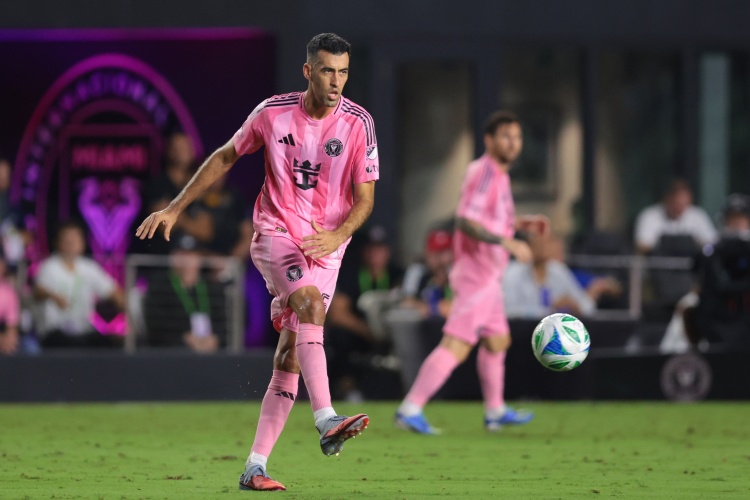
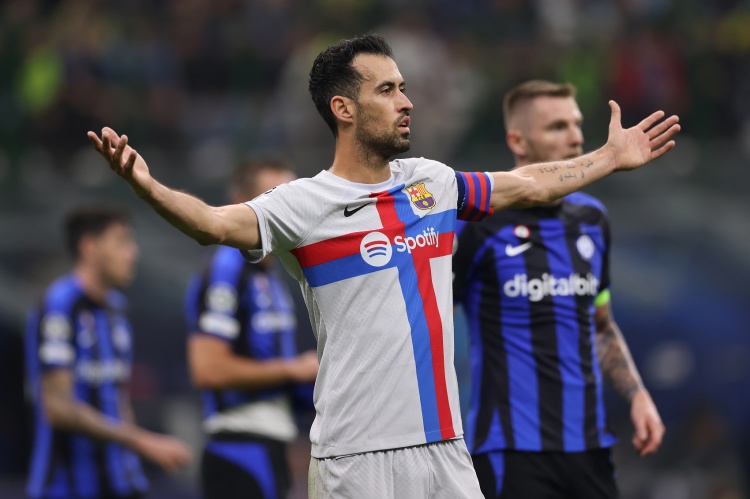
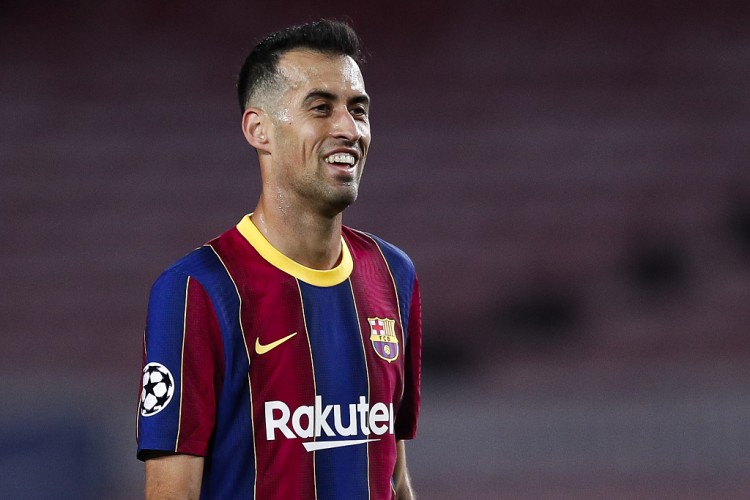
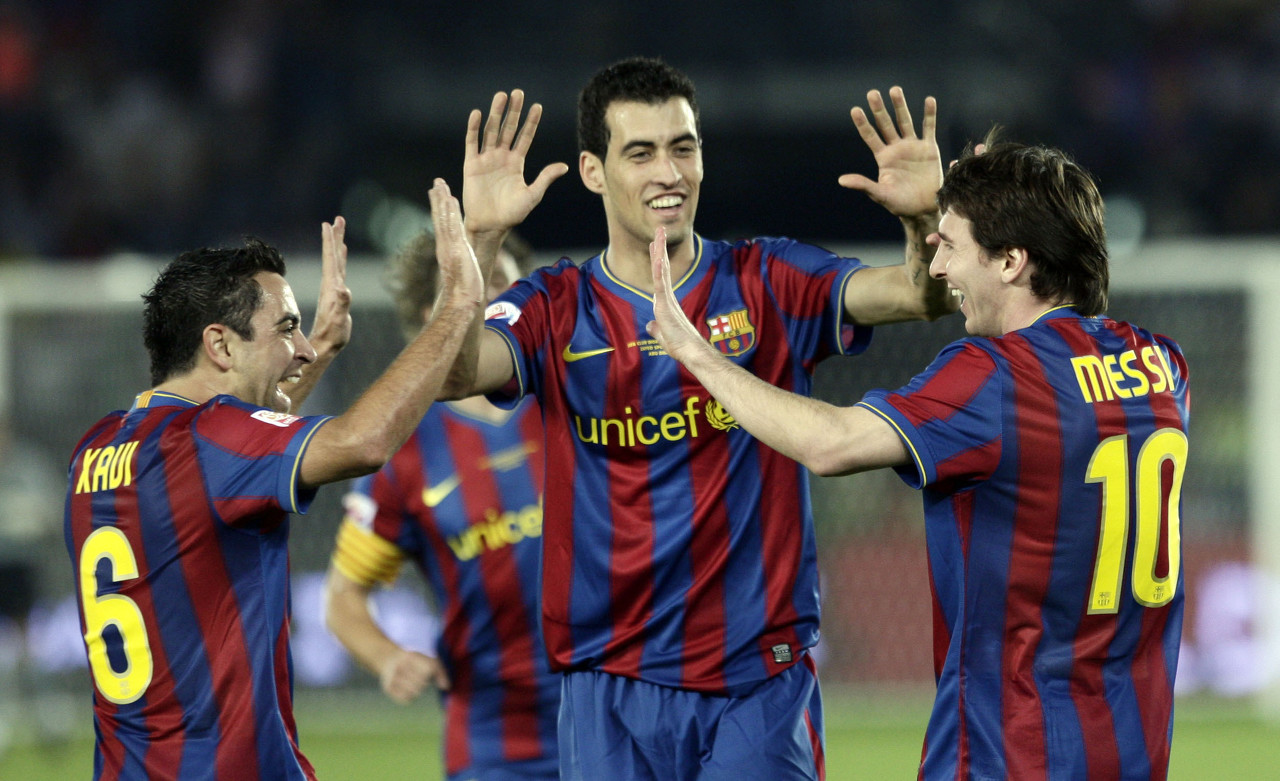

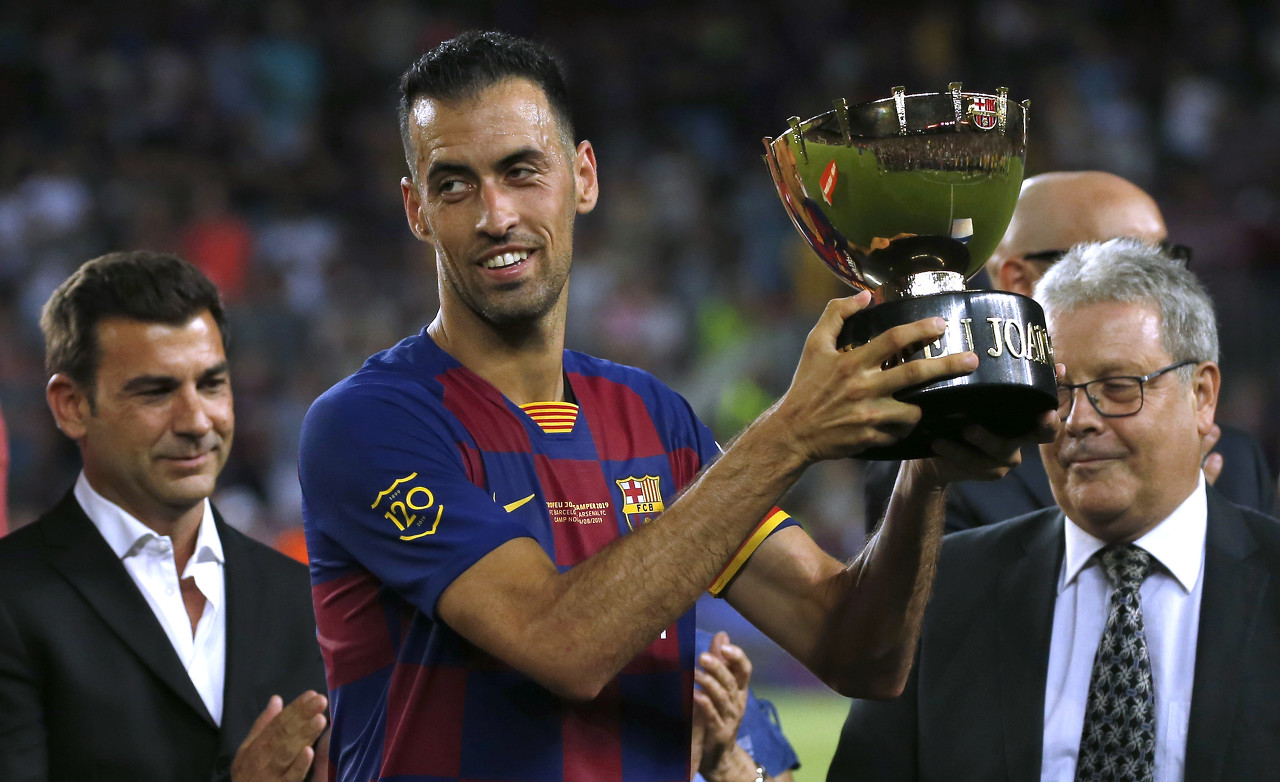
- Recent Posts
-
- At 32 years old, the gas tank
- Reporter: Gittens completed th
- Silveti talks about assisting
- 🔥The latest odds of the Golden
- Increase by 1 million euros! R
- The 35-year-old Polish midfiel
- 😧British media: Diaz is extrem
- Official: Atletico Madrid cent
- First save in El Clasico in th
- Scaroni talks about new stadiu
- Hot Posts
-
- Skira: Inter Milan coaching te
- Bayern World Team Leader: Firs
- Team Note: Werz s transfer fee
- Official: Hamburg signs Holste
- Salute to the legend! Guerre s
- Longo: In recent hours, Atleti
- Romano: Atletico Madrid introd
- Mid-style: Inter Milan regards
- M said that the European Cup i
- 😭A Barcelona fan made an MSN p
- Romano: Nunes transfer negotia
- Mourinho: Fenerbahce is the on
- Even if you lose, you will sti
- At least 45 million euros! Ski
- Victory coach: Felix and Ronal
- Junya Ito: Give himself 30 poi
- Desky Sky: Newcastle represent
- A-Davis: I like running fast b
- World: Although both sides are
- Per Sport: Oviedo and Real Mad
- search
-
- Links
-
